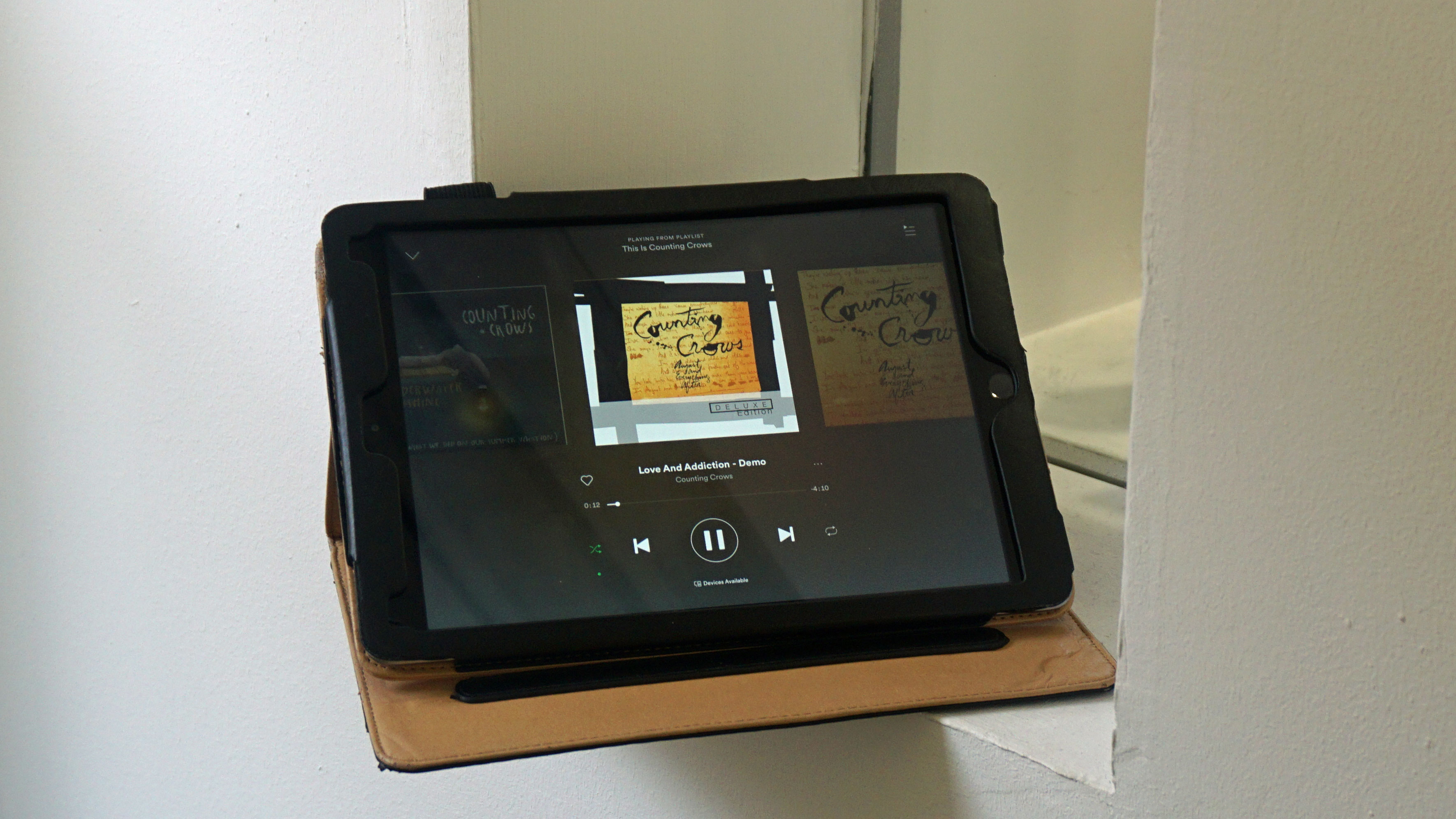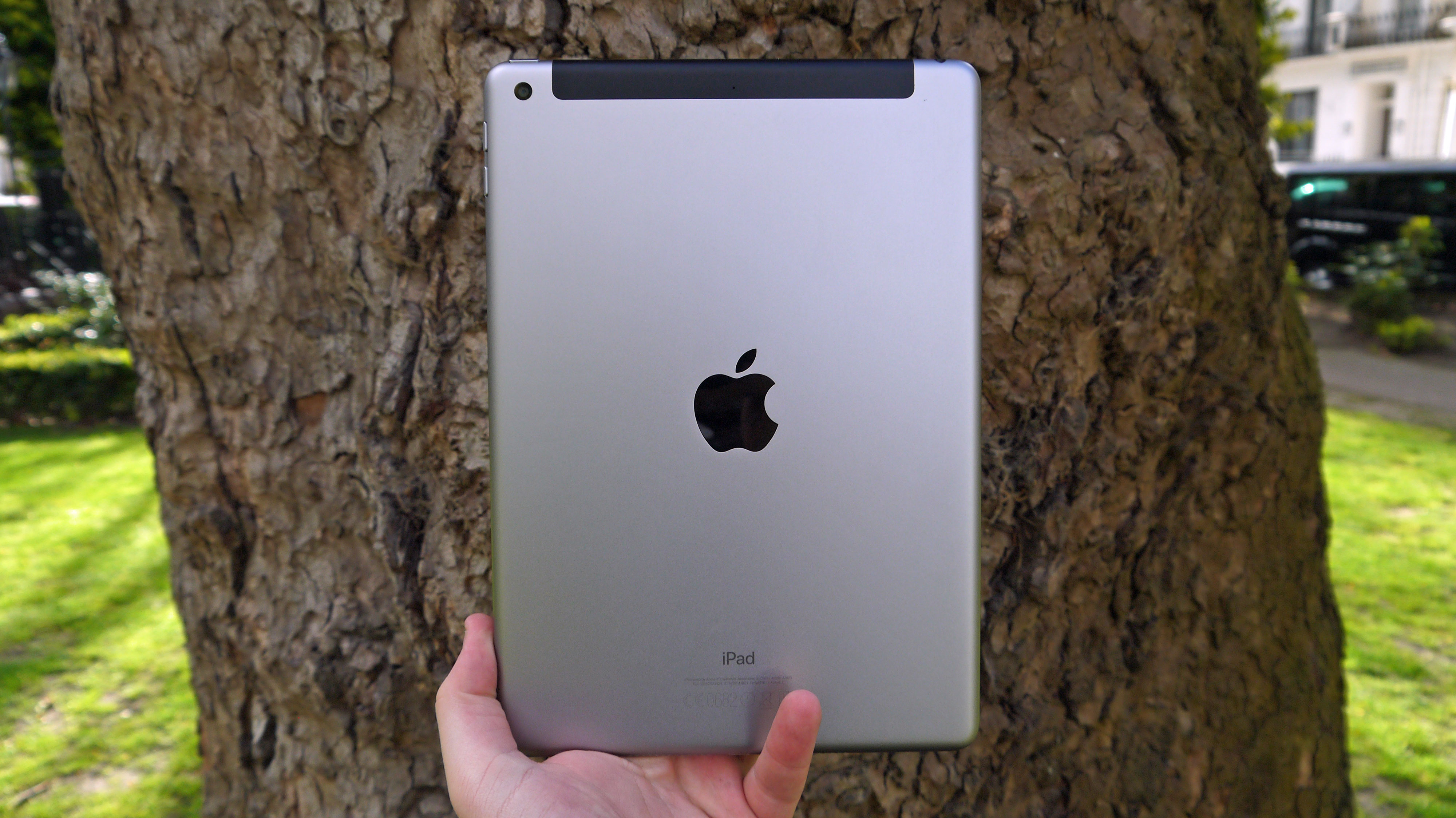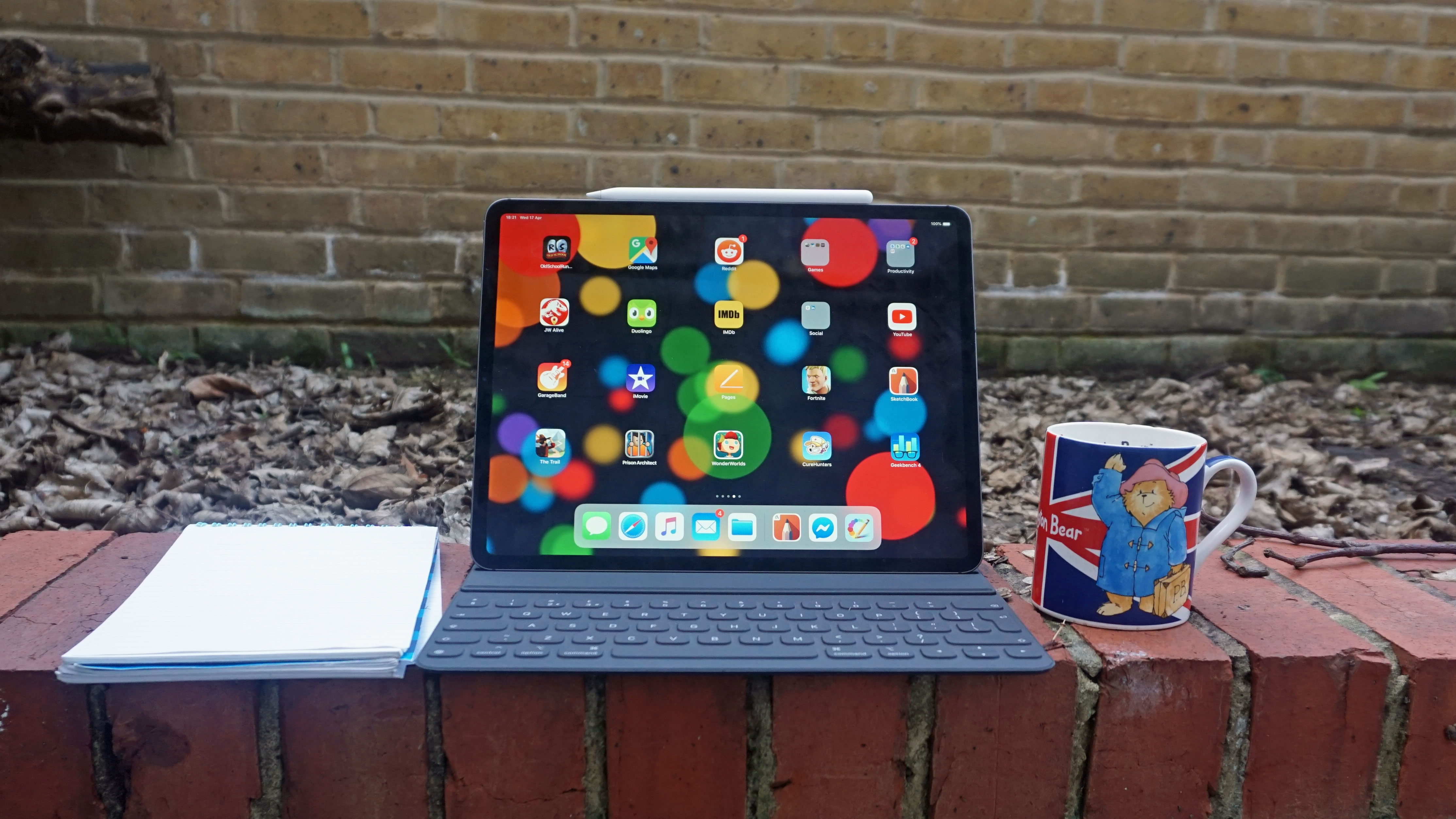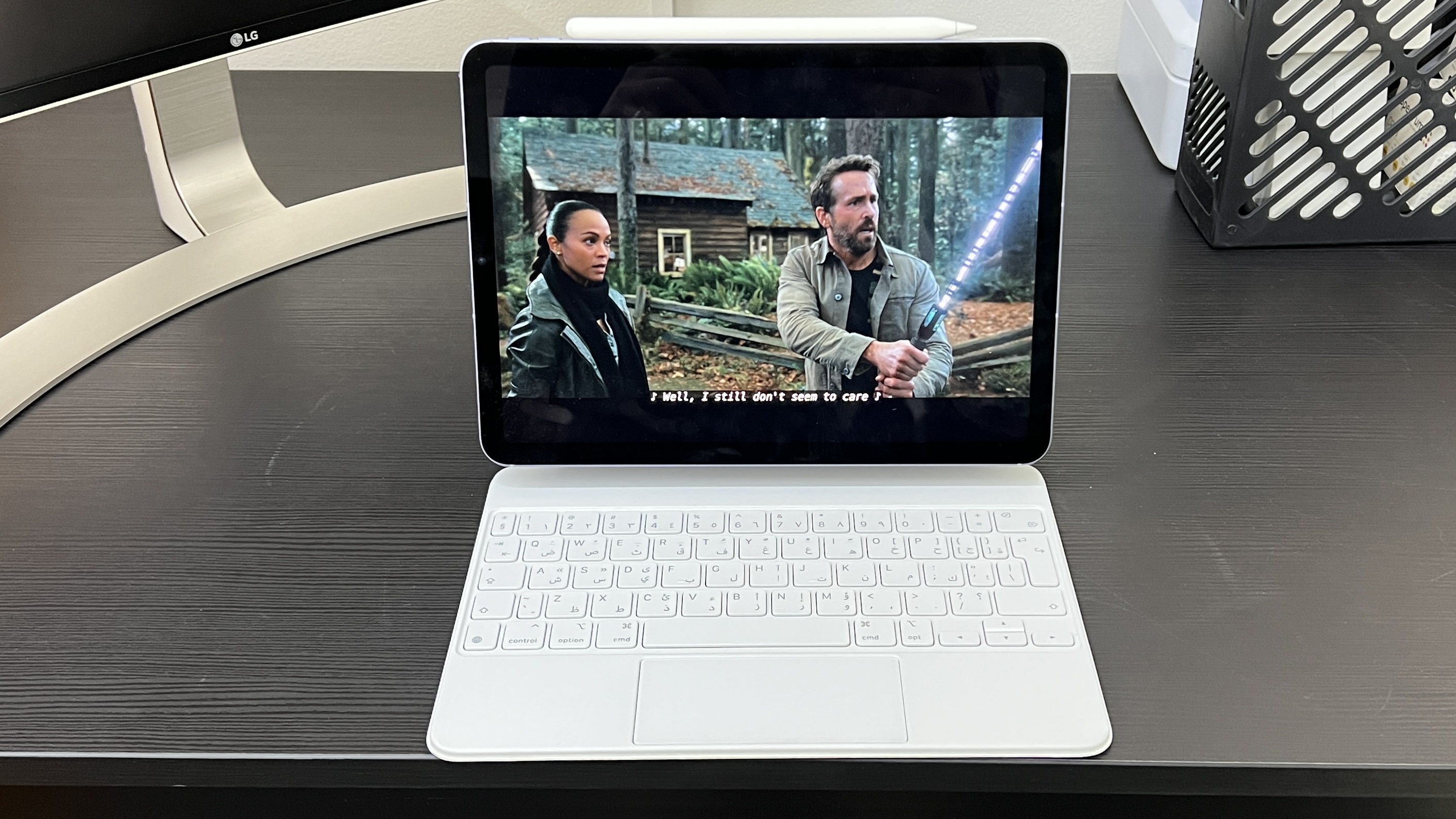My 2017 iPad was a great buy – but in 2022, Apple's tablets don't have the same charm
Know when to hold

Sign up for breaking news, reviews, opinion, top tech deals, and more.
You are now subscribed
Your newsletter sign-up was successful
The iPad Air 5, launched in March, was a surprising jump up in terms of power from the Air 4, touting the same Apple M1 chip that newer iPad Pro models use, but something about it didn't sit right with me. At first I thought it was that Apple was presenting it as a device for creatives when it didn't have the specs to match - but something caused me to change my mind.
We recently heard a leak about the new iPad for 2022 - that's the entry-level slate that Apple refreshes every year. This leak suggested that the device could get a big design update, possibly including the removal of the home button and a sizeable reduction in the bezel size, to bring it more in line with Apple's more modern tablets.
If this information is true, Apple is bringing its last family of tablets in line with its new design, which it's slowly been rolling out to its different iPads for the last few years.
This design matches the specs of these tablets, and suits them well for businesspeople or creatives looking for a sleek device. But Apple seems to be forgetting something - it has a much wider audience than that.
A history of iPads
I first bought the iPad 9.7 in 2017 - I was a student at the time, and needed a device that I could take to campus and work on, that also wasn't as chunky or fragile as a low-end laptop.
For just £300 (around $395 / AU$525 - I got it for a discount, I don't remember why, but also bought a case that offset the saving), I had an incredibly portable device that served me well for years after.

I used the tablet for university essays, creative writing (I minored in creative writing - yeah, I really wasted my youth), screenplays, watching movies at home, listening to music out loud and Duolingo too, which really took over one peculiar year of my life.
Sign up for breaking news, reviews, opinion, top tech deals, and more.
When my smartphone broke, I didn't buy a new one - I just used my old flip phone for calls and texts, and relied on the iPad for all social media.
I could use my iPad in the university library, in the media room for the student newspaper I was an editor at, in various cafes and pubs around campus, at home on my desk or bed, at my partner's house, even in the bath. It was a perfect utility device.
The main reason I loved it was its portability - I studied in a fairly small city that you could traverse without public transport, so I spent an hour or more every day on bikes and walking, and wasn't burdened by a massive laptop.
The iPad sat within my budget and fit my needs, and I couldn't find a laptop that did the same. And I'm not alone.
The iPad's audience
The entry-level iPad has remained a tablet designed for people exactly like I was - not particularly fussed about tech, who just want a useful, portable and inexpensive tablet to use.

I know plenty of people who don't care about tech but use their iPads all the time - seniors who find phones too small, musicians who need a big screen to see sheet music, reading fans who don't want a Kindle, the list goes on and on.
These people don't need the fastest, flashiest processor, or a super top-end screen, and also don't want to spend loads of money on a fancy tablet when they're only going to use 10% of the features.
And that's the thing Apple doesn't seem to realize.
The slow slipping of the iPad
iPads were great products for normal people, like I was as a student, but Apple's new tablets aren't catering to that kind of audience.
Admittedly the iPad Pro line was never designed for the everyday user - Pro is short for 'professional' after all - but the entry-level and Air lines used to be.
The iPad Air was once a great option for people who wanted something like the entry-level tablet, but with a larger display - well, that was the state of things by the iPad Air 3.
The fourth-gen option changed up the design quite a bit, eschewing the classic iPad design for iPad-Pro-inspired sleekness, and the fifth-gen option brought 5G connectivity and a super-powerful chipset.
The new device isn't one that any average buyer should consider. Not only is it more powerful than anyone needs (including professionals), but it's a lot pricier than the iPad Air 3, so people with limited budgets have been forgotten.

I'm worried that the standard iPad range is going to go the same way. Previously, these tablets have used the same processors as the iPhones, which makes them powerful enough as it is, without getting the unnecessarily powerful - and expensive - Apple M1.
This might seem outlandish - but the iPad Air getting the M1 also sounded unlikely, until it happened - and thanks to the high price tag, it's arguably a less tempting tablet compared to its predecessor as a result.
Students don't need the M1. Seniors don't need the M1. Musicians and readers and teachers and children don't need the M1. What all those people do need is affordable tech.
There might be some people who really want an M1 chipset in a tablet - but the only apps that will benefit from that are a select few work or creativity apps, so these people will be professionals. If only there was an iPad for them - an Pro iPad, say...
I wouldn't buy any of these
If I was a student now, in 2022, I wouldn't buy the iPad Pro or Air or even Mini - the iPad 10.2 from 2021 would be my only option. And if the new iPad for 2022 does bring some of the unnecessary improvements I'm expecting, and costs more as a result, it'll be ruled out too.
There have been several years of on-and-off recession where I live, and in many places around the world. There's currently a cost of living crisis going on, so buying tech isn't really a priority to many people.
That is to say, Apple should be making its tech more affordable, not bumping up the specs for no good reason. Sure, its new devices might be more tempting to current or aspiring creatives or professionals, but for the legion of Apple buyers who need a familiar and reliable device, there's nothing out there worth buying anymore.

Tom Bedford is a freelance contributor covering tech, entertainment and gaming. Beyond TechRadar, he has bylines on sites including GamesRadar, Digital Trends, WhattoWatch and BGR. From 2019 to 2022 he was on the TechRadar team as the staff writer and then deputy editor for the mobile team.